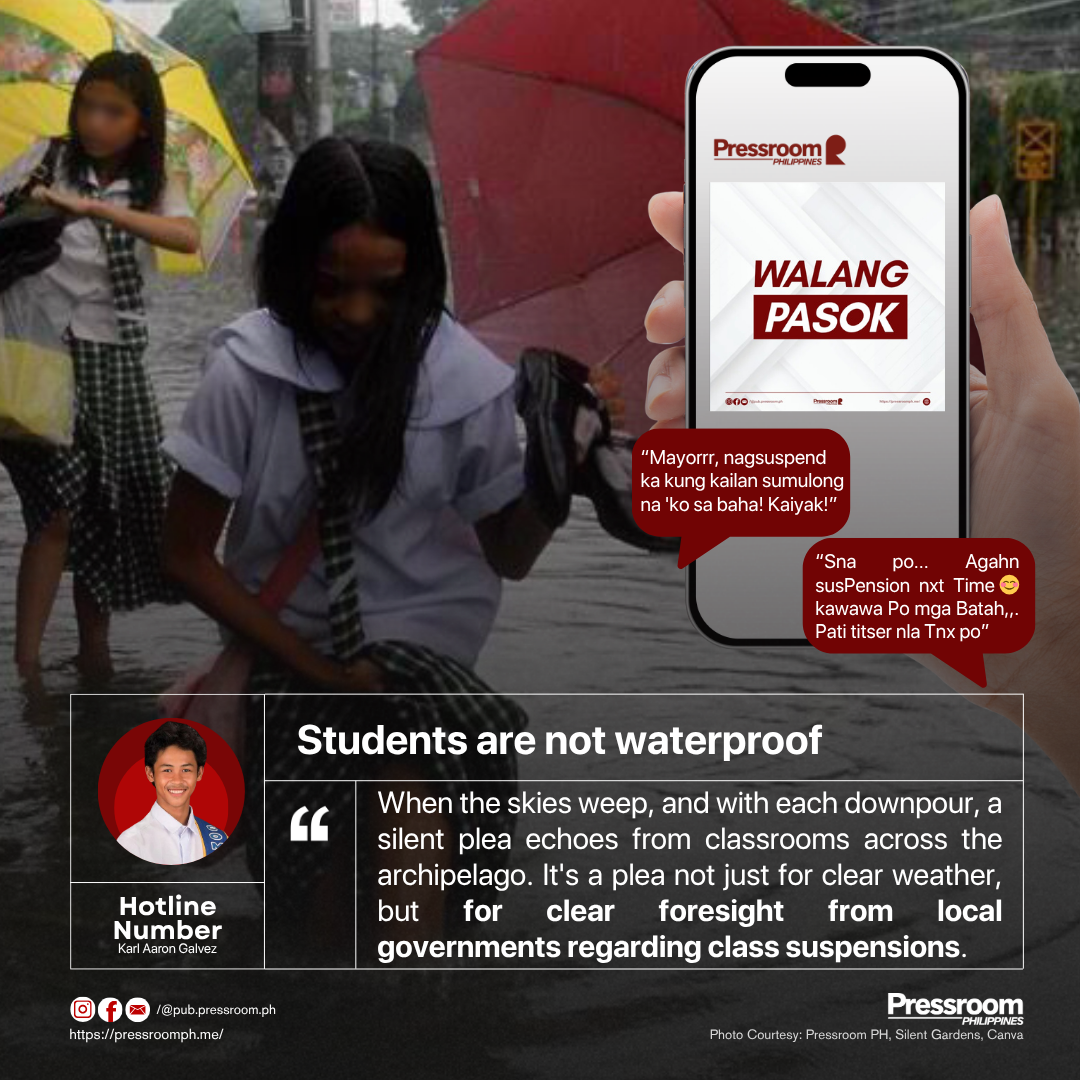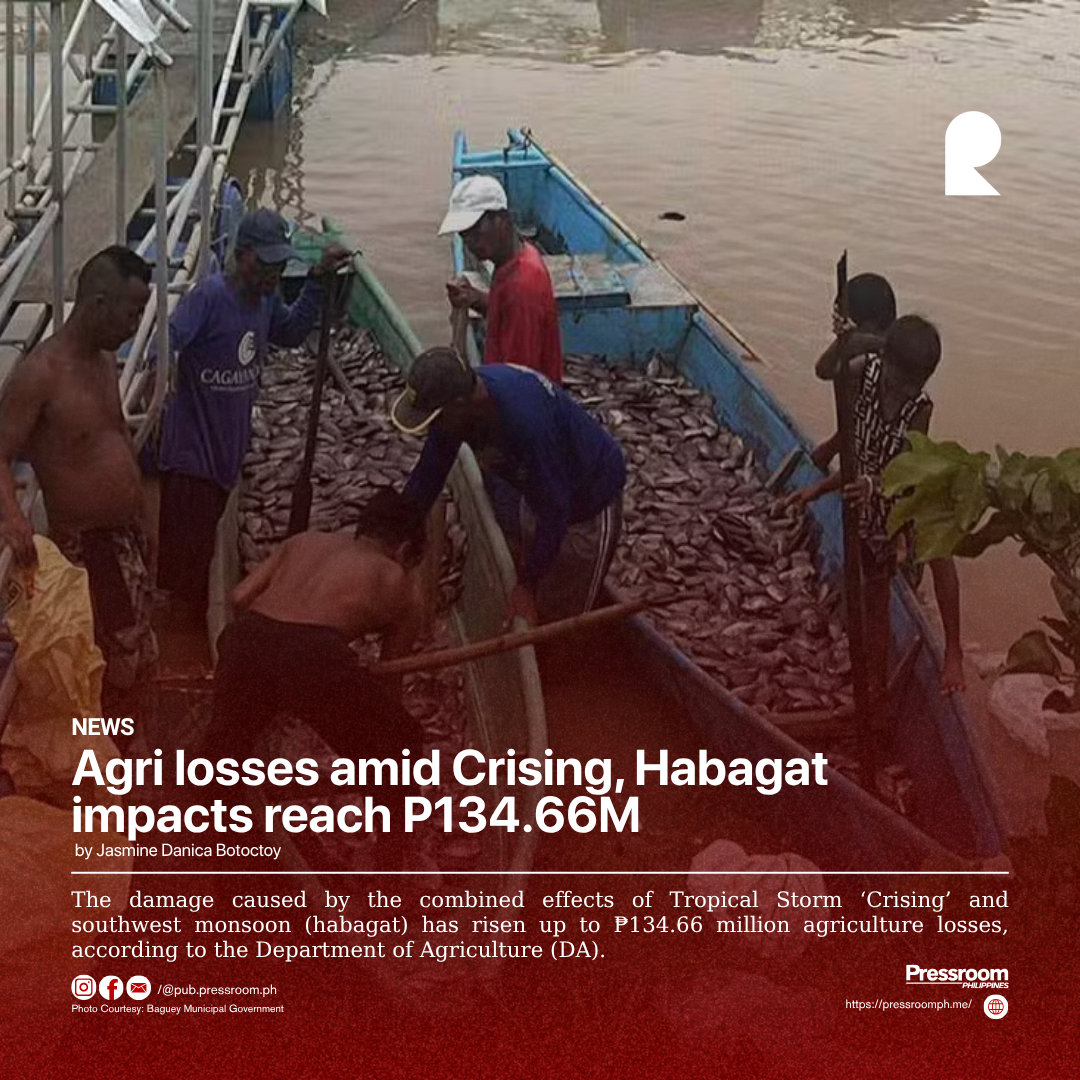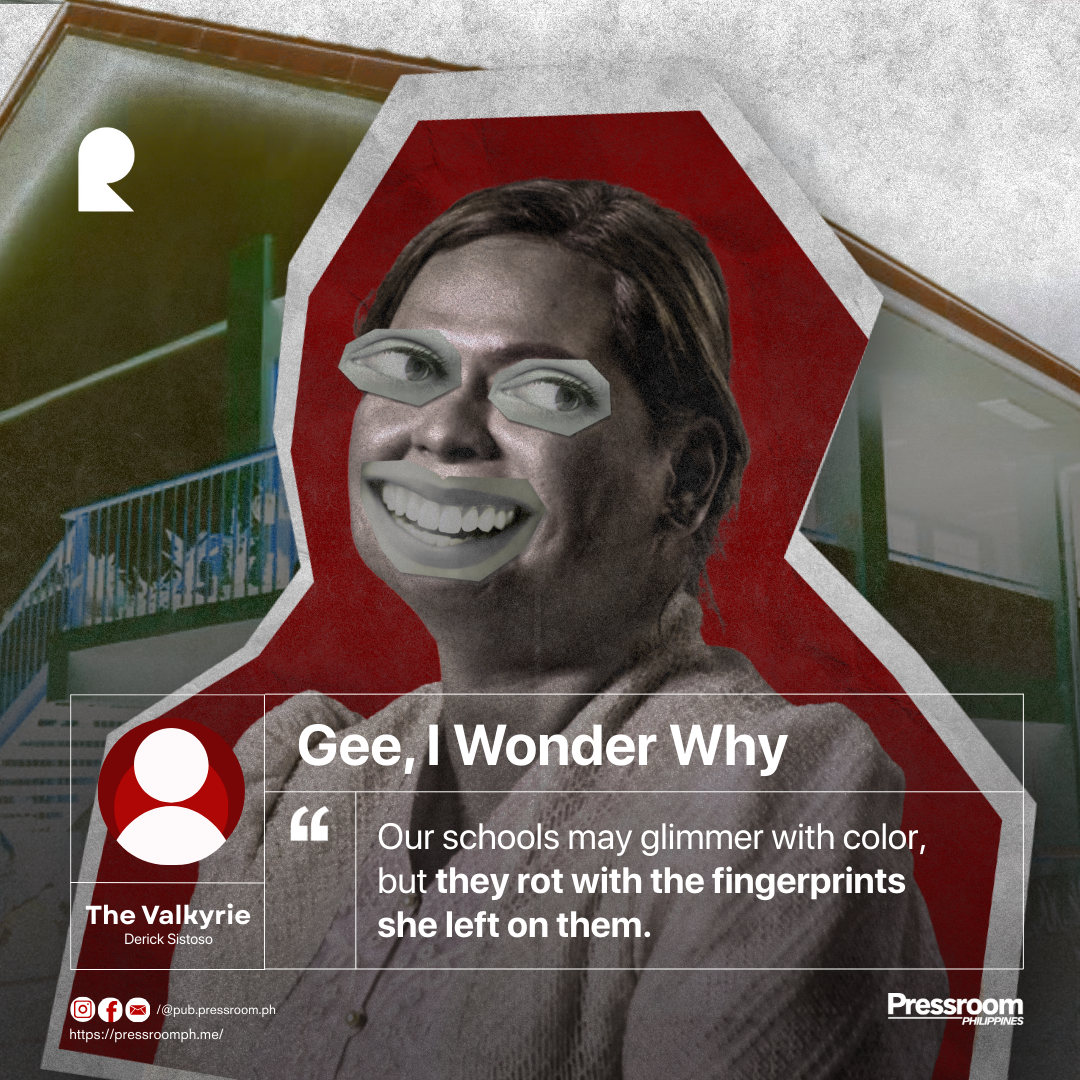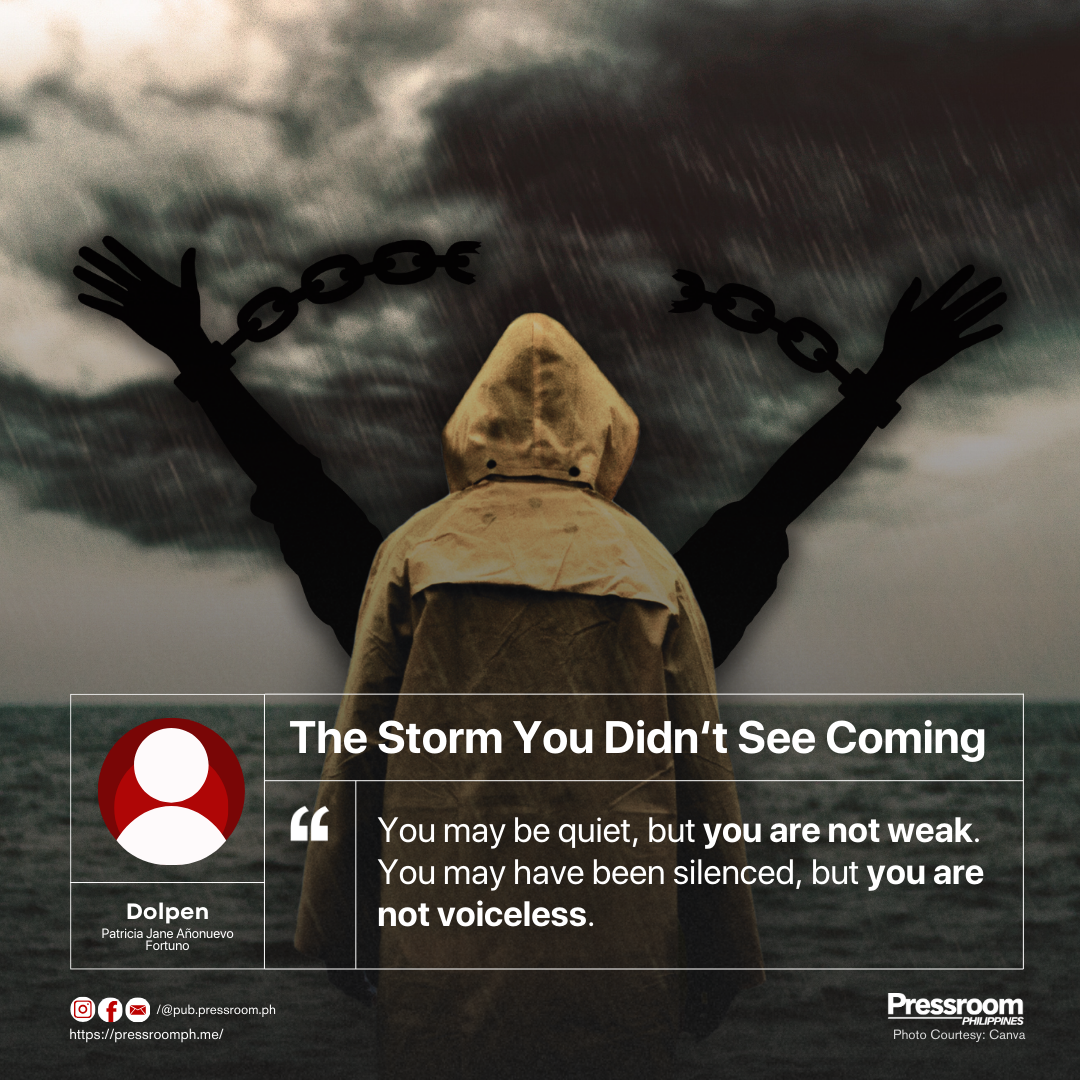Every time the rain intensifies, a silent question hangs in the air for thousands of Filipino families: "Do we send our children to school?" It's a dilemma born from genuine concern, forcing parents to weigh safety against attendance. But, the answer should be clear from the start: students are not waterproof.
When the skies weep, and with each downpour, a silent plea echoes from classrooms across the archipelago. It's a plea not just for clear weather, but for clear foresight from local governments regarding class suspensions. As Bryan Edison Panaligan, a Quezon City-based dedicated professional teacher observes firsthand, the often heartbreaking reality of students and colleagues braving the elements is a scene that truly weighs on the heart.
"Bilang isang guro at pangalawang magulang, nakakadurog ng puso makita ang mga estudyanteng pauwi, basang-basa sa ulan. Yung pilit nilang tinatago ang mga bag, gamit ang plastic para lang hindi mabasa ang kanilang gamit," Panaligan said.
It’s not only the roads that get flooded; the hearts of educators feel the deluge too. They witness children, bundled yet vulnerable, still making their way to school, only to return home soaked, shivering, their heavy bags clinging to their equally heavy, chilled bodies. This begs a crucial question: Do they truly need to endure such hardship before a suspension order is finally issued?
Local authorities are implored to be more proactive with announcements of class suspensions. There shouldn't be a need to wait for distressing images of children wading through flooded streets to prompt action. There shouldn't be a need to wait for them to fall ill.
Again, students are not waterproof. Panaligan said "Araw-araw, kahit masama ang panahon, may mga batang pilit pa ring pumapasok. Uuwing basang-basa, nanginginig, bitbit ang mabibigat na bag at katawan. Ang tanong po: kailangan pa ba nilang danasin ito bago pa ipag-utos ang suspensyon?"
Every delayed decision impacts a child and a teacher, leaving them inconvenienced, drenched, and often, in harm's way. Early action means early protection. Educators are not asking for a break; what they are asking for is genuine compassion.
These children, with whom teachers spend their days, are more than just students. They become family, like their own sons and daughters, their younger siblings, deserving of utmost care. It’s heartbreaking to watch them trudge home, drenched, desperately trying to shield their bags with plastic to save their belongings.
And it's not just the students. Parents, too, grapple with the anxiety of whether to send their children to school, many rising early to escort them through the rain. Teachers, on the other hand, push through the day, sometimes literally soaked to the bone, their spirits dampened but their commitment unwavering. They brave floods, shiver in wet shoes, yet still teach with a smile, even as exhaustion gnaws at them from within.
The sacrifices teachers make are not just physical; they are deeply emotional and mental. With every weather report, their silent prayer is that neither the children nor they, their teachers, have to endure such unnecessary hardship again. Prioritizing their well-being is crucial, for it is the foundation of their learning and a shared future.






